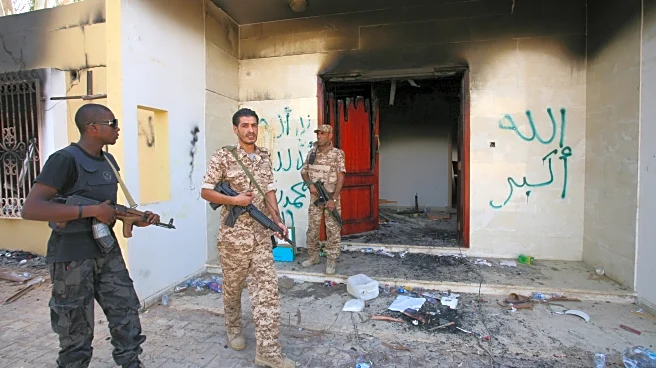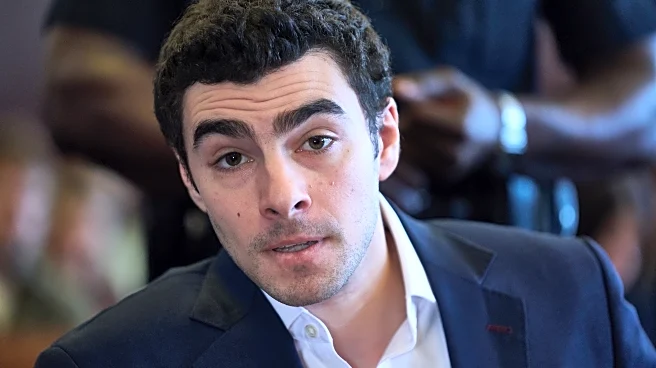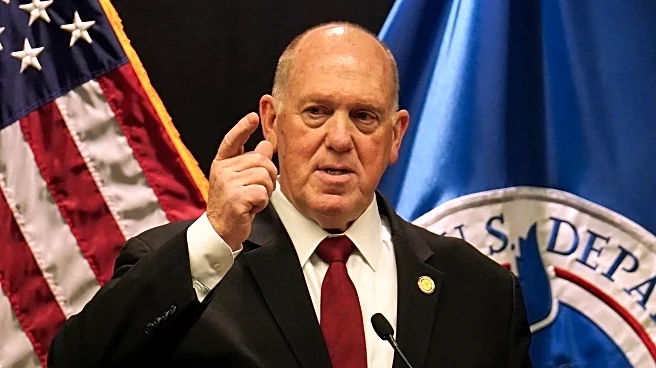What's Happening?
The Israeli government has authorized Red Cross teams to operate beyond the IDF's yellow line in Gaza to locate the bodies of hostages. This decision comes amid ongoing tensions and violence in the region, with the Hamas-run Health Ministry reporting
eight Palestinian deaths and 13 hospitalizations over the past 48 hours. The IDF conducted a strike near Khan Yunis, resulting in casualties among Palestinian civilians. Additionally, released hostage Bar Kuperstein revealed that his captors justified their actions by citing National Security Minister Itamar Ben-Gvir's treatment of Palestinian prisoners. Meanwhile, Jordan's King Abdullah II expressed conditional support for a U.S.-proposed international force in Gaza, emphasizing a peacekeeping mission over law enforcement. The situation remains volatile, with various international and regional stakeholders involved.
Why It's Important?
The authorization for Red Cross operations in Gaza is a significant development in the ongoing humanitarian crisis. It highlights the Israeli government's willingness to allow international humanitarian efforts amidst the conflict. This move could potentially ease tensions by facilitating the recovery of hostages and providing aid to affected civilians. The broader implications include potential shifts in international relations, as countries like Jordan and Egypt engage in diplomatic discussions regarding the situation. The involvement of the Red Cross may also influence public perception and international pressure on Israel to address humanitarian concerns. The ongoing violence and political dynamics in the region continue to impact the lives of civilians and the geopolitical landscape.
What's Next?
The next steps involve monitoring the effectiveness of Red Cross operations in Gaza and assessing their impact on the humanitarian situation. The international community may increase diplomatic efforts to mediate the conflict and support peacekeeping initiatives. The Israeli government's actions and the responses from regional players like Jordan and Egypt will be crucial in shaping future developments. Additionally, the treatment of Palestinian prisoners and the rhetoric of political figures like Itamar Ben-Gvir may continue to influence hostilities and negotiations. Stakeholders will likely focus on balancing security concerns with humanitarian needs, aiming for a resolution that minimizes civilian suffering.
Beyond the Headlines
The decision to allow Red Cross operations in Gaza raises ethical and legal questions about the treatment of hostages and prisoners in conflict zones. It underscores the importance of international humanitarian law and the role of organizations like the Red Cross in conflict resolution. The situation also highlights the cultural and political tensions between Israel and Palestine, with implications for long-term peace efforts. The involvement of international forces and diplomatic negotiations may lead to shifts in regional alliances and power dynamics, affecting future peace processes and stability in the Middle East.
















